-
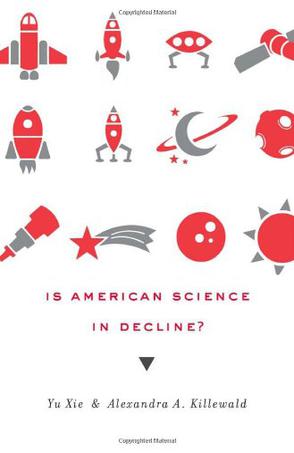
Is American Science in Decline?
While the authors identify areas of concern regarding scientists’ low earnings, competition from Asia, and the declining number of academic positions, they conclude that science in the United States is not in decline. American culture is highly conducive to science, and educated workers with a range of skills will still be in demand in the future. -
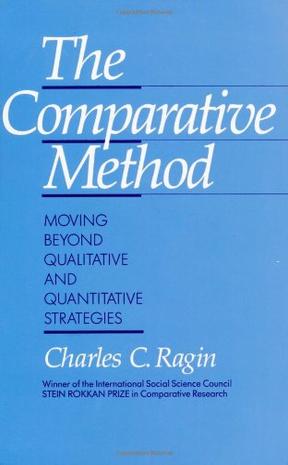
The Comparative Method
Professor Ragin proposes a synthetic new strategy, based on an application of Boolean algebra, that will combine the strengths of both qualitative and quantitative sociology. Elegantly accessible and germane to the work of all the social sciences, this book will garner interest, debate, and praise from many quarters. -
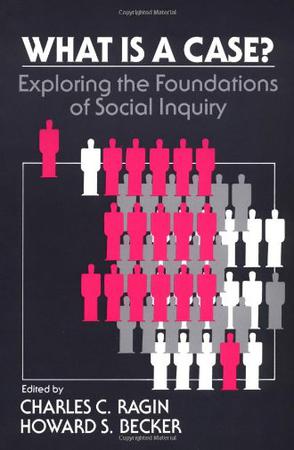
What Is a Case?
The concept of the case is a basic feature of social science research and yet many questions about how a case should be defined, selected, and judged are far from settled. The contributors to this volume probe the nature of the case and the ways in which different understandings of the concept affect the conduct and the results of research. The contributions demonstrate that the work of any given researcher is often characterised by some hybrid of these basic approaches, and it is important to understand that most research involves multiple definitions and uses of cases, as both specific empirical phenomena and as general theoretical categories. -
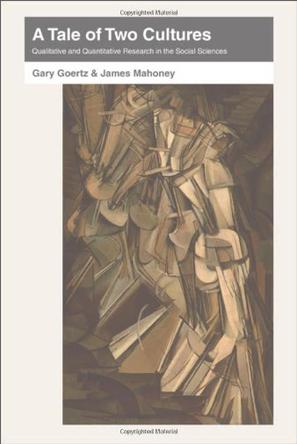
A Tale of Two Cultures
Some in the social sciences argue that the same logic applies to both qualitative and quantitative methods. In "A Tale of Two Cultures", Gary Goertz and James Mahoney demonstrate that these two paradigms constitute different cultures, each internally coherent yet marked by contrasting norms, practices, and toolkits. They identify and discuss major differences between these two traditions that touch nearly every aspect of social science research, including design, goals, causal effects and models, concepts and measurement, data analysis, and case selection. Although focused on the differences between qualitative and quantitative research, Goertz and Mahoney also seek to promote toleration, exchange, and learning by enabling scholars to think beyond their own culture and see an alternative scientific worldview. This book is written in an easily accessible style and features a host of real-world examples to illustrate methodological points. -
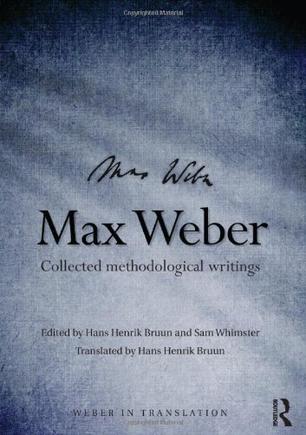
Max Weber
Weber's methodological writings form the bedrock of key ideas across the social sciences. His discussion of value freedom and value commitment, causality, understanding and explanation, theory building and ideal types have been of fundamental importance, and their impact remains undiminished today. These ideas influence the current research practice of sociologists, historians, economists and political scientists and are central to debates in the philosophy of social science. But, until now, Weber's extensive writings on methodology have lacked a comprehensive publication. Edited by two of the world's leading Weber scholars, Collected Methodological Writings will provide a completely new, accurate and reliable translation of Weber's extensive output, including previously untranslated letters. Accompanying editorial commentary explains the context of, and interconnections between, all these writings, and additional useful features include a glossary of German terms and an English key, endnotes, bibliography, and person and subject indexes. -
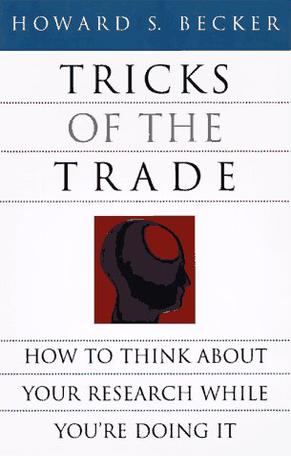
Tricks of the Trade
Drawing on more than four decades of experience as a researcher and teacher, Howard Becker now brings to students and researchers the many valuable techniques he has learned. Tricks of the Trade will help students learn how to think about research projects. Assisted by Becker's sage advice, students can make better sense of their research and simultaneously generate fresh ideas on where to look next for new data. The tricks cover four broad areas of social science: the creation of the "imagery" to guide research; methods of "sampling" to generate maximum variety in the data; the development of "concepts" to organize findings; and the use of "logical" methods to explore systematically the implications of what is found. Becker's advice ranges from simple tricks such as changing an interview question from "Why?" to "How?" (as a way of getting people to talk without asking for a justification) to more technical tricks such as how to manipulate truth tables. Becker has extracted these tricks from a variety of fields such as art history, anthropology, sociology, literature, and philosophy; and his dazzling variety of references ranges from James Agee to Ludwig Wittgenstein. Becker finds the common principles that lie behind good social science work, principles that apply to both quantitative and qualitative research. He offers practical advice, ideas students can apply to their data with the confidence that they will return with something they hadn't thought of before. Like Writing for Social Scientists, Tricks of the Trade will bring aid and comfort to generations of students. Written in the informal, accessible style for which Becker is known, this book will be an essential resource for students in a wide variety of fields. "An instant classic. . . . Becker's stories and reflections make a great book, one that will find its way into the hands of a great many social scientists, and as with everything he writes, it is lively and accessible, a joy to read."—Charles Ragin, Northwestern University